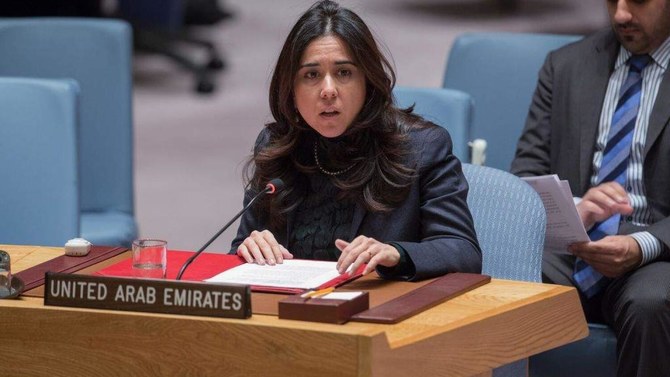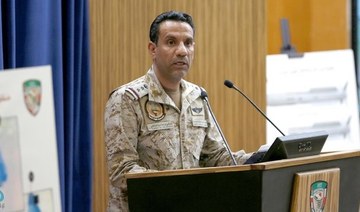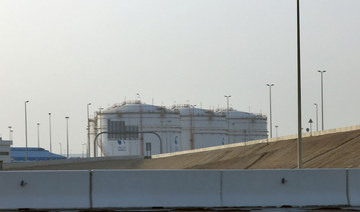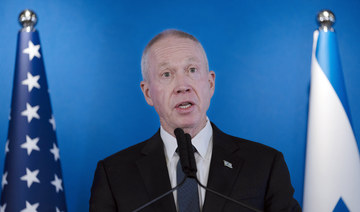NEW YORK: The UN Security Council’s unanimous condemnation of the deadly terrorist attack on Abu Dhabi this week is “a really important step” in efforts to hold the Houthi militia in Yemen accountable for its crimes and prevent future atrocities, according to the UAE’s permanent representative to the UN.
Lana Nusseibeh added that her country has a “sovereign right to defend itself, our people and our way of life, as any nation in same situation would do.”
She was speaking on Friday after a Security Council meeting, convened at the UAE’s request, to discuss the attack on the country’s capital.
Following the closed-door discussions, held under the title Threats to International Peace and Security, the 15 council members unanimously condemned the “heinous, terrorist” attack on Abu Dhabi and called for the perpetrators to be brought to justice.
“The members of the Security Council condemn in the strongest terms the heinous terrorist attacks in Abu Dhabi, United Arab Emirates, on Monday, Jan. 17, as well as in other sites in Saudi Arabia,” they said.
They stressed the need to hold the “perpetrators, organizers, financiers and sponsors of these reprehensible acts of terrorism accountable” and urged all UN member states to cooperate with the UAE in achieving this.
Three people were killed and six injured in a drone assault on a key oil facility in the Emirati capital, and a separate fire was sparked at Abu Dhabi’s international airport. The Houthis claimed responsibility for the attack, which immediately drew condemnation worldwide.
The council members offered their condolences to the families of the victims, two of whom were Indian nationals and one a Pakistani, and to the governments of their countries.
They reiterated that “terrorism in all its forms and manifestations constitutes one of the most serious threats to international peace and security” and that any acts of terrorism are “criminal and unjustifiable, regardless of their motivation, wherever, whenever and by whomsoever committed.”
The Security Council also reaffirmed the need for all states to “combat by all means, in accordance with the Charter of the United Nations and other obligations under international law, including international human rights law, international refugee law and international humanitarian law, threats to international peace and security caused by terrorist acts.”
Nusseibeh said that “the council has spoken with one voice that this egregious aggression by the Houthis, as well as the proliferation of missiles and other technology that enabled the terrorist attack, is a clear threat to the entire international community.”
Her country is strongly encouraged that the council joined more 100 nations and international organizations in strongly condemning the attack, she added.
“The UAE cares deeply about our citizens and about millions of citizens from around the world who have made our country their home,” Nusseibeh said.
“This meeting and this statement are clear indication of the concern that the international community takes at this attack. More than 200 nationalities call the UAE home and more than 60,000 passengers transit through Abu Dhabi International Airport every day.”
In the letter requesting the special session of the Security Council, addressed to the Norwegian delegation, which holds the presidency of the council this month, Nusseibeh described the latest escalation of violence as “a further step in the Houthis’ efforts to spread terrorism and chaos in our region. It is another attempt by the Houthis, using the capabilities they have unlawfully acquired in defiance of UN sanctions, to threaten peace and security.”
Many of the nations that sit on the council, including permanent members France, Russia, China, the US and the UK, had already issued statements condemning the Houthi assault on Abu Dhabi, with the US and the UK calling it a “terrorist attack.”
In response to a request by the UAE, US President Joe Biden said on Thursday that his administration is considering reinstating the designation of the Houthis as a “Foreign Terrorist Organization.”
The attack on Monday was the second high-profile incident this month involving the Houthis and the UAE. The militia seized an Emirati-flagged cargo ship, the Rwabee, in the Red Sea off Yemen’s western coast on Jan. 3.
The Security Council previously unanimously condemned the seizure of the ship and the detention of its crew. In a statement drafted by the UK, members demanded the immediate release of the vessel and those on board, and urged the Houthis to guarantee the safety and well-being of the crew.
They also called on all sides to resolve the issue quickly and highlighted the importance of preserving freedom of navigation in the Gulf of Aden and Red Sea, in accordance with international law.
The hijacking of the Rwabee was the latest Houthi assault in the Red Sea, which is a crucial route for international trade and energy shipments.






















